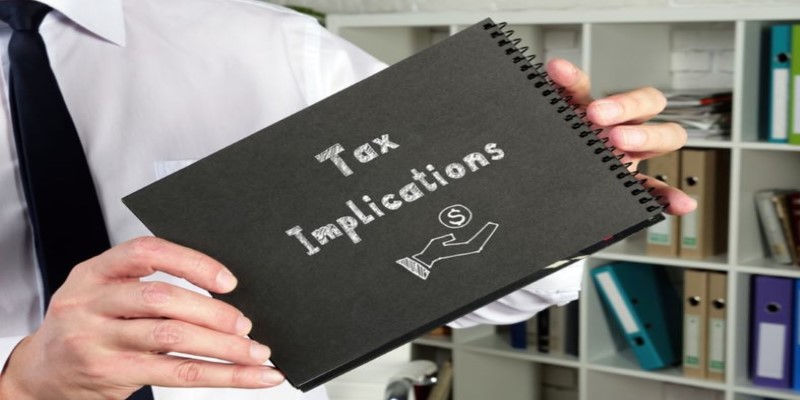Many people believe a will is enough to protect their assets and loved ones, but it only covers part of the picture. A will outlines asset distribution after death but doesn't address things like incapacity or tax planning. Estate planning goes further, ensuring your assets are properly managed, distributed, and protected based on your wishes.
It's a common misconception that estate planning is for the rich alone—anyone can use a solid plan. Without it, your loved ones can experience legal issues and holdups. Knowing the difference between a will and estate planning assures your legacy.
What is a Will?
A last will and testament is a legal document that outlines how you want your assets distributed after your death. It allows you to name beneficiaries, appoint an executor to carry out your wishes and designate guardians for minor children. A will takes effect only after you pass away, and it must go through probate—a court procedure that authenticates the document and pays debts and taxes before distributing assets.
Although a will is an easy method of defining who receives what, it has its drawbacks. Probate is a time-consuming and costly process, usually taking months or even years to resolve. Moreover, a will does not address all the details of estate administration, like dealing with incapacity or reducing taxes. If you aim to establish a more complete plan for your property, a will might not be sufficient.
What is Estate Planning?
Estate planning is a more comprehensive and specific way to control your possessions before and after you die. It involves a last will and testament, but it also covers other legal devices like trusts, power of attorney, and health care directives. A basic will does not compare to an estate plan, as an estate plan guarantees that your possessions are taken care of in the manner that you desire, both while you're alive and once you're dead.

One of the biggest advantages of estate planning is that it can help avoid probate. Assets placed in a trust, for example, can be transferred directly to beneficiaries without court intervention. This saves time, reduces legal costs, and maintains privacy. Additionally, estate planning allows you to plan for unexpected events, such as incapacitation, by appointing someone to manage your finances and healthcare decisions if you become unable to do so.
Another key benefit is tax efficiency. A properly structured estate plan can reduce estate taxes, ensuring that more of your wealth goes to your heirs instead of the government. This is especially important for those with significant assets, but even modest estates can benefit from tax-saving strategies.
Key Differences Between a Will and Estate Planning
When it comes to securing your assets and ensuring your wishes are fulfilled after your passing, it’s essential to understand the difference between a will and estate planning. Although both serve the purpose of managing your affairs, they do so in different ways and offer varying levels of control and protection. Here's a breakdown of the key differences between the two:
Scope and Coverage
A will outlines how your assets are distributed after death and can appoint an executor and guardian for children. However, it doesn't cover incapacity or tax concerns. Estate planning, on the other hand, is more comprehensive and includes wills, trusts, powers of attorney, and healthcare directives. It manages your affairs both during your life and after your death, providing greater control and flexibility in handling your estate and health decisions.
Probate and Court Involvement
A will must go through probate, a court-supervised process to validate the will and distribute assets, which can be lengthy, costly, and public. Estate planning, particularly with tools like trusts, can help avoid probate, allowing assets to be transferred directly to beneficiaries without court involvement. This saves time, reduces costs, and ensures privacy, allowing for a smoother, more efficient transition of your assets to your heirs.
Incapacity Planning
A will only comes into effect after death and doesn’t address incapacity. Without additional documents like a power of attorney or healthcare directive, your family may need court intervention to make decisions for you if you're incapacitated. Estate planning, however, includes these tools, allowing you to designate someone to manage your finances and make healthcare decisions for you if you become unable to do so. It provides essential protection during life, not just after death.
Tax Implications

A will doesn’t provide any tax-saving strategies, potentially leaving your estate subject to taxes and reducing the inheritance your heirs receive. Without a plan, your beneficiaries may face a larger tax burden. In contrast, estate planning can minimize estate taxes through trusts, charitable donations, and other strategies. By strategically planning how your assets are distributed, estate planning can help reduce taxes, ensuring more wealth goes to your loved ones rather than the government.
Flexibility and Control
A will is a fixed document that can only be changed by going through a legal process. If circumstances change, you must update the will. In contrast, estate planning provides more flexibility. You can adjust your estate plan as your life evolves—whether it’s modifying beneficiaries, changing trustees, or updating healthcare instructions. Estate planning allows you to maintain control and make necessary changes as your needs and circumstances shift, ensuring your plan stays relevant.
Conclusion
While a last will and testament is essential for distributing assets after death, estate planning offers a more comprehensive solution. Estate planning provides additional tools, such as trusts and power of attorney, to manage your assets, reduce taxes, and avoid the delays and costs of probate. It ensures that your wishes are followed during your lifetime and after your death, offering greater protection for your loved ones. Whether you choose a will or a full estate plan, taking action now can prevent future complications, providing peace of mind for you and your family.












